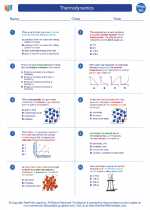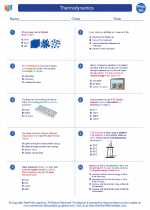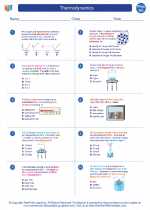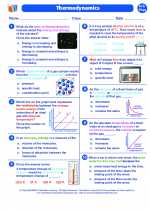Durable in Physics
In physics, the term "durable" is often used to describe a material or object that is able to withstand wear, pressure, or damage over an extended period of time. Durable materials have high strength and resistance to forces that may cause deformation or breakage. This property is important in various applications, such as building structures, engineering designs, and the development of new technologies.
Factors Affecting Durability
Several factors contribute to the durability of a material or object:
- Material Composition: The atomic and molecular structure of a material determines its strength and resilience.
- Force and Stress: The type and magnitude of forces acting on a material can impact its durability.
- Environmental Conditions: Exposure to temperature changes, moisture, and other environmental factors can affect the durability of materials.
- Design and Engineering: The way a material is designed and engineered can influence its ability to withstand wear and tear.
Testing Durability
Scientists and engineers use various methods to test the durability of materials, including:
- Tensile Testing: This test measures the strength of a material by applying tension to it until it breaks.
- Impact Testing: Materials are subjected to sudden impacts to assess their ability to withstand sudden forces.
- Accelerated Aging Tests: Materials are exposed to extreme conditions to simulate the effects of long-term use in a short period of time.
Applications of Durability
The concept of durability is crucial in various fields, including:
- Construction and Architecture: Durable materials are essential for building long-lasting structures and infrastructure.
- Automotive and Aerospace Engineering: Components in vehicles and aircraft must be durable to ensure safety and performance.
- Consumer Products: Electronics, appliances, and everyday items need to be durable to withstand regular use.
Study Guide
When studying the concept of durability in physics, it's important to focus on the following key points:
- Understand the factors that contribute to the durability of materials.
- Learn about the different testing methods used to assess the durability of materials.
- Explore real-world applications of durability in various industries.
- Practice solving problems related to material strength and durability.
By mastering the concept of durability, you'll gain a deeper understanding of the properties that make materials resilient and long-lasting, which is essential for success in the field of physics.
.◂Physics Worksheets and Study Guides High School. Thermodynamics

 Worksheet/Answer key
Worksheet/Answer key
 Worksheet/Answer key
Worksheet/Answer key
 Worksheet/Answer key
Worksheet/Answer key
